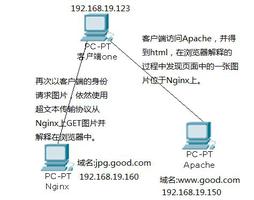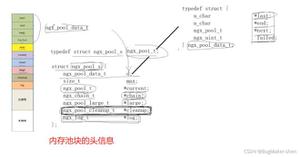PHP文件缓存smarty模板应用实例分析
本文实例分析了PHP文件缓存smarty模板" title="smarty模板">smarty模板应用。分享给大家供大家参考,具体如下:
一、使用缓存
要开启smarty的缓存,只需将caching设为true,并指定cache_dir即可.
使用cache_lefetime指定缓存生存时间,单位为秒
要对相同页面生成多个不同的缓存,在display或fetch中加入第二参数cache_id,如:
$smarty->display('index.tpl',$my_cache_id);
此特性可用于对不同的$_GET进行不同的缓存
二、清除缓存
clear_all_cache();//清除所有缓存
clear_cache('index.tpl');//清除index.tpl的缓存
clear_cache('index.tpl',cache_id);//清除指定id的缓存
三、使用自定义缓存方式
设置cache_handler_func使用自定义的函数处理缓存
如:
$smarty->cache_handler_func = "myCache";
function myCache($action, &$smarty_obj, &$cache_content, $tpl_file=null, $cache_id=null, $compile_id=null){
}
该函数的一般是根椐$action来判断缓存当前操作:
switch($action){
case "read"://读取缓存内容
case "write"://写入缓存
case "clear"://清空
}
一般使用md5($tpl_file.$cache_id.$compile_id)作为唯一的cache_id
如果需要,可使用gzcompress和gzuncompress来压缩和解压
四、局部关闭缓存
要在某些区域使缓存失效(只对需要的缓存),有几种方法:
insert:
定义一个insert标签要使用的处理函数,函数名格式为:insert_xx(array $params, object &$smarty)其中的xx是insert的name,也就是说,如果你定义的函数为insert_abc,则模板中使用方法为{insert name='abc'}
参数通过$params传入
也可以做成insert插件,文件名命名为:insert.xx.php,函数命名为:smarty_insert_aa($params,&$smarty),xx定义同上
register_block:
定义一个block:
smarty_block_name($params,$content, &$smarty){return $content;}
//name表示区域名
注册block:
$smarty->register_block('name', 'smarty_block_name', false);
//第三参数false表示该区域不被缓存
模板写法:
{name}内容{/name}
写成block插件:
1)定义一件插件函数:block.cacheless.php,放在smarty的plugins目录
block.cacheless.php的内容如下:
<?php
function smarty_block_cacheless($param, $content, &$smarty) {
return $content;
}
?>
2) 编写程序及模板
示例程序:testCacheLess.php
<?php
include('Smarty.class.php');
$smarty = new Smarty;
$smarty->caching=true;
$smarty->cache_lifetime = 6;
$smarty->display('cache.tpl');
?>
所用的模板:cache.tpl
已经缓存的:
{$smarty.now}<br>
{cacheless}
没有缓存的:
{$smarty.now}
{/cacheless}
更多关于PHP相关内容感兴趣的读者可查看本站专题:《smarty模板入门基础教程》、《php日期与时间用法总结》、《php面向对象程序设计入门教程》、《php字符串(string)用法总结》、《php+mysql数据库操作入门教程》及《php常见数据库操作技巧汇总》
希望本文所述对大家PHP程序设计有所帮助。
以上是 PHP文件缓存smarty模板应用实例分析 的全部内容, 来源链接: utcz.com/z/320562.html





